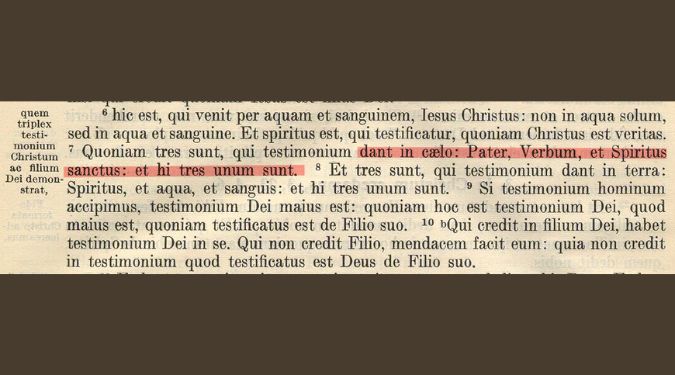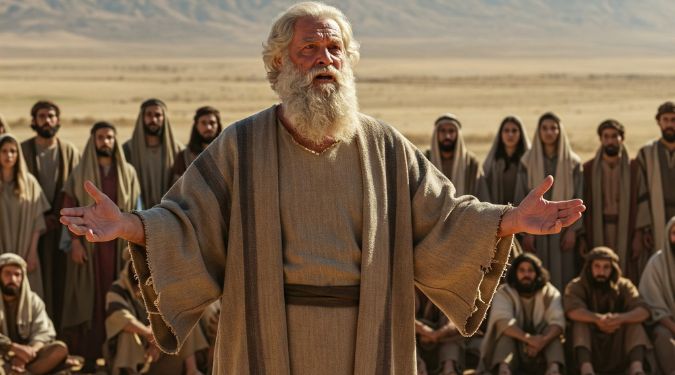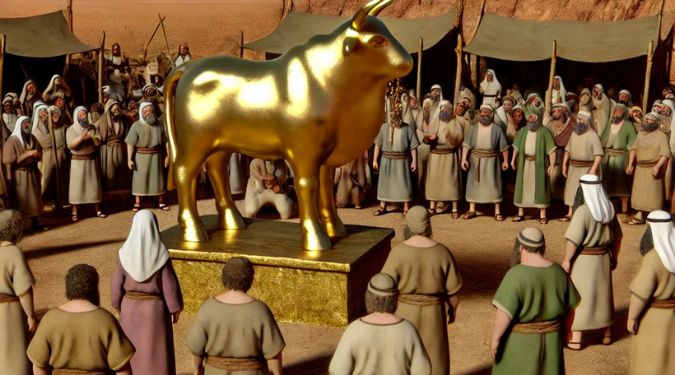“If any one comes to me and does not hate his own father and mother and wife and children and brother and sisters, yes, even his own life, he cannot be my disciple.”
Luke 14:26 RSVCE
Does Jesus require us to hate our own families? How could this be?
The word for hate used in this verse is a form of the Koine Greek verb μισεῖν (pronounced mis-EH-o) which means “to hate” or “to detest”. (“Strong’s Greek: 3404. μισέω (miseó) — to hate”) It is used 40 other times in the New Testament in this very sense. Here is an example:
“Blessed are you when men hate you, and when they exclude you and revile you, and cast out your name as evil, on account of the Son of man!”
Luke 6:22 RSVCE
What are we to make of this? After all, we have the Fourth Commandment:
“Honor your father and your mother, as the Lord your God commanded you; that your days may be prolonged, and that it may go well with you, in the land which the Lord your God gives you.”
Deuteronomy 5:16 RSVCE
And Jesus himself reiterated this commandment elsewhere in His teaching:
For Moses said, ‘Honor your father and your mother’; and, ‘He who speaks evil of father or mother, let him surely die’; but you say, ‘If a man tells his father or his mother, What you would have gained from me is Corban’ (that is, given to God)— then you no longer permit him to do anything for his father or mother, thus making void the word of God through your tradition which you hand on. And many such things you do.”
Mark 7:10-13 RSVCE
Read the verse in its context
There are at least five steps we could take, but the first would be to read the verse in its context. In this case, we should read the verses that follow verse 26 in the 14th chapter of the Gospel according to St. Luke:
Whoever does not bear his own cross and come after me, cannot be my disciple. For which of you, desiring to build a tower, does not first sit down and count the cost, whether he has enough to complete it? Otherwise, when he has laid a foundation, and is not able to finish, all who see it begin to mock him, saying, ‘This man began to build, and was not able to finish.’ Or what king, going to encounter another king in war, will not sit down first and take counsel whether he is able with ten thousand to meet him who comes against him with twenty thousand? And if not, while the other is yet a great way off, he sends an embassy and asks terms of peace. So therefore, whoever of you does not renounce all that he has cannot be my disciple.
Luke 14:27-33
We see then, that Jesus is exhorting his followers to count and to know the cost of discipleship and that it may involve having to give up many things that we hold dear.
Check the other Gospels
The second thing we could do is to see how one or more of the other inspired authors of the Gospels reported this teaching. In the Gospel of Matthew we read:
“He who loves father or mother more than me (emphasis added) is not worthy of me; and he who loves son or daughter more than me is not worthy of me.”
Matthew 10:37 RSVCE
Most of us will be satisfied with Matthew’s reporting. Jesus taught that our love for our families must be rightly ordered and that He comes first.
Check other places in the Bible
We can, however, go a step further and see if there is any other use of the word μισεῖν in this relative sense, that is, in a way that means “to love less” rather than “to hate”. We find one such instance in the Septuagint (“Kata Biblon Greek Septuagint and Wiki English Translation”)(Thayer et al. 415), the Greek Old Testament favored by the inspired authors of the New Testament:
So Jacob went in to Rachel also, and he loved Rachel more than Leah, and served Laban for another seven years. When the Lord saw that Leah was hated (μισεῖται), he opened her womb; but Rachel was barren.
Genesis 29:30-31 RSVCE
Here we see that the use of the word “hate” even can have a relative sense in the underlying Hebrew since the Septuagint translates the Hebrew verb שָׂנֵא, pronounced saw-NAY and meaning “to hate”. (“Strong’s Hebrew: 8130. שָׂנֵא (sane) — to hate”)
Consult a Commentary
We could also consult a good Scriptural commentary. One such commentary reports:
The language in verse 26 is harsh. In a reflection of the Semitic convention to employ hyperbole in order to make a point, Luke uses the Greek verb miseō, a term meaning “detest” or “abhor.” The lesson teaches that no earthly attachment to a person, place, or thing should keep us from following God. Discipleship requires singleness of purpose, and this purpose is to go beyond natural ties and allegiances for the sake of the kingdom. Doing so will not be easy (v. 27). (Durken 1141)
Jesus was known to use hyperbole (exaggeration for rhetorical purposes) in his teaching as you are sure to remember:
And if your hand causes you to sin, cut it off; it is better for you to enter life maimed than with two hands to go to hell, to the unquenchable fire. And if your foot causes you to sin,[ cut it off; it is better for you to enter life lame than with two feet to be thrown into hell. And if your eye causes you to sin, pluck it out; it is better for you to enter the kingdom of God with one eye than with two eyes to be thrown into hell.
Mark 9:43-47 RSVCE, also Matt 5:29
Check the Church Fathers
Last, but certainly not least, we should try to see if any of the Church Fathers have provided any exegesis on the verse. In this case, Tertullian of Carthage (AD 220) has:
Parents, wives, children, will have to be left behind, for God’s sake. In the same manner, therefore, we maintain that the other announcements too refer to the condition of martyrdom. “He” says Jesus, “who will value his own life also more than me, is not worthy of me”
Tertullian of Carthage
Martydom, of course! The ultimate cost of discipleship could very well be to choose martyrdom, a choice for Christ over the love of family.
Conclusion
Jesus requires that our love for our family be rightly ordered and that our love of Him should come first. Indeed, our love for HIm may generate some opposition from our families and could conceivably require martyrdom. But wouldn’t our love for our families will be purer and stronger if it is based on a love for Christ?
Works Cited
Durken, Daniel. New Collegeville Bible Commentary: One Volume Hardcover Edition. Edited by Daniel Durken, Liturgical Press, 2017.
“Kata Biblon Greek Septuagint and Wiki English Translation.” Genesis 29, https://en.katabiblon.com/us/index.php?text=LXX&book=Gn&ch=29&interlin=on. Accessed 21 April 2024.
“Strong’s Greek: 3404. μισέω (miseó) — to hate.” Bible Hub, https://biblehub.com/greek/3404.htm. Accessed 21 April 2024.
“Strong’s Hebrew: 8130. שָׂנֵא (sane) — to hate.” Bible Hub, https://biblehub.com/hebrew/8130.htm. Accessed 21 April 2024.
“Tertullian of Carthage.” Luke 14:26- Catena Bible & Commentaries, https://catenabible.com/com/5735e140ec4bd7c9723bbe4c. Accessed 21 April 2024.
Thayer, Joseph Henry, et al. Thayer’s Greek-English Lexicon of the New Testament: Coded with Strong’s Concordance Numbers. Edited by Joseph Henry Thayer, translated by Joseph Henry Thayer, Hendrickson, 1996.




Hello Chuck, I would like to get in contact with you to discuss some topics regarding the Neocatechumenal Way. How can I get in touch?
I will send an email to the address you gave.